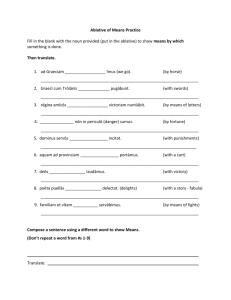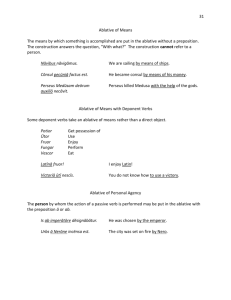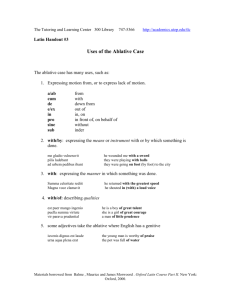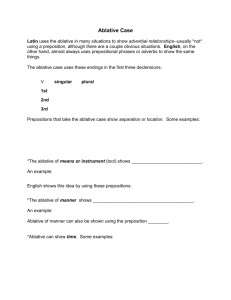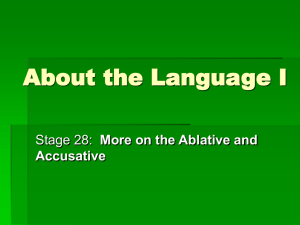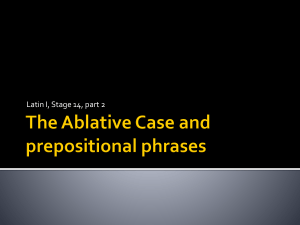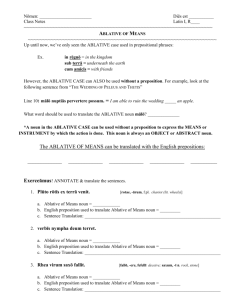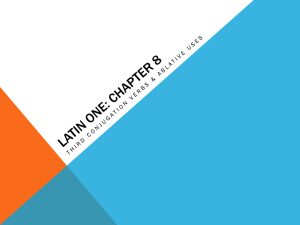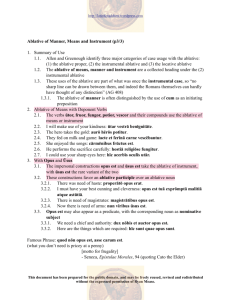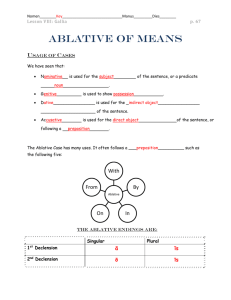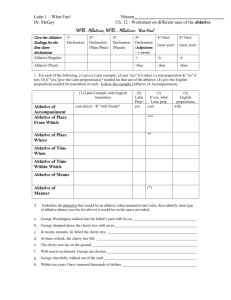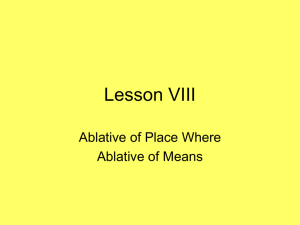Ablative of Manner, Means and Instrument (p2/3) 1
advertisement
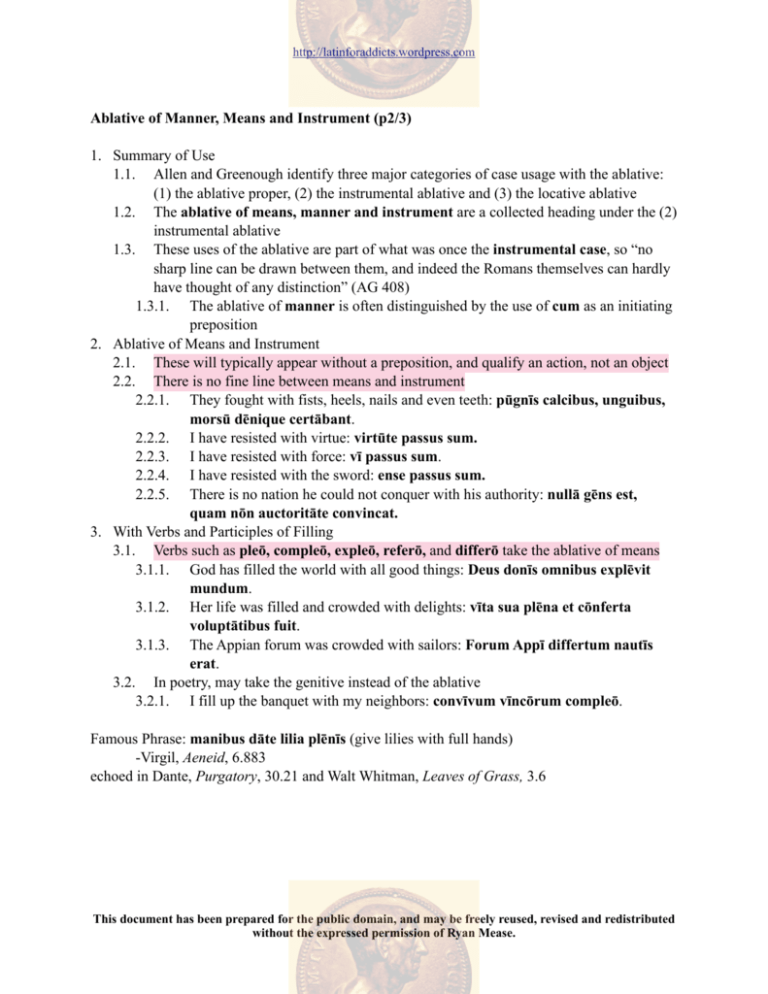
http://latinforaddicts.wordpress.com Ablative of Manner, Means and Instrument (p2/3) 1. Summary of Use 1.1. Allen and Greenough identify three major categories of case usage with the ablative: (1) the ablative proper, (2) the instrumental ablative and (3) the locative ablative 1.2. The ablative of means, manner and instrument are a collected heading under the (2) instrumental ablative 1.3. These uses of the ablative are part of what was once the instrumental case, so “no sharp line can be drawn between them, and indeed the Romans themselves can hardly have thought of any distinction” (AG 408) 1.3.1. The ablative of manner is often distinguished by the use of cum as an initiating preposition 2. Ablative of Means and Instrument 2.1. These will typically appear without a preposition, and qualify an action, not an object 2.2. There is no fine line between means and instrument 2.2.1. They fought with fists, heels, nails and even teeth: pūgnīs calcibus, unguibus, morsū dēnique certābant. 2.2.2. I have resisted with virtue: virtūte passus sum. 2.2.3. I have resisted with force: vī passus sum. 2.2.4. I have resisted with the sword: ense passus sum. 2.2.5. There is no nation he could not conquer with his authority: nullā gēns est, quam nōn auctoritāte convincat. 3. With Verbs and Participles of Filling 3.1. Verbs such as pleō, compleō, expleō, referō, and differō take the ablative of means 3.1.1. God has filled the world with all good things: Deus donīs omnibus explēvit mundum. 3.1.2. Her life was filled and crowded with delights: vīta sua plēna et cōnferta voluptātibus fuit. 3.1.3. The Appian forum was crowded with sailors: Forum Appī differtum nautīs erat. 3.2. In poetry, may take the genitive instead of the ablative 3.2.1. I fill up the banquet with my neighbors: convīvum vīncōrum compleō. Famous Phrase: manibus dāte lilia plēnīs (give lilies with full hands) -Virgil, Aeneid, 6.883 echoed in Dante, Purgatory, 30.21 and Walt Whitman, Leaves of Grass, 3.6 This document has been prepared for the public domain, and may be freely reused, revised and redistributed without the expressed permission of Ryan Mease.
